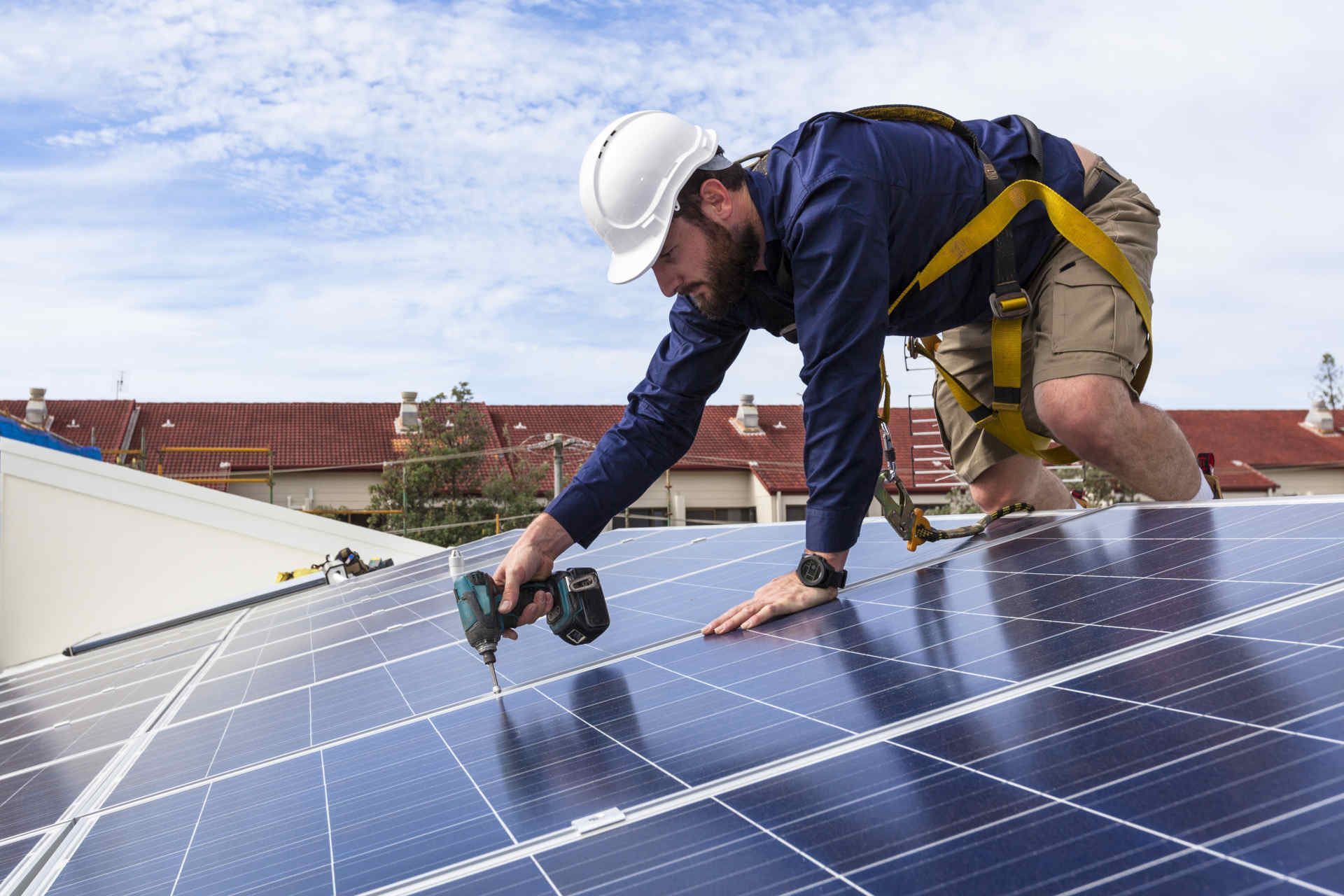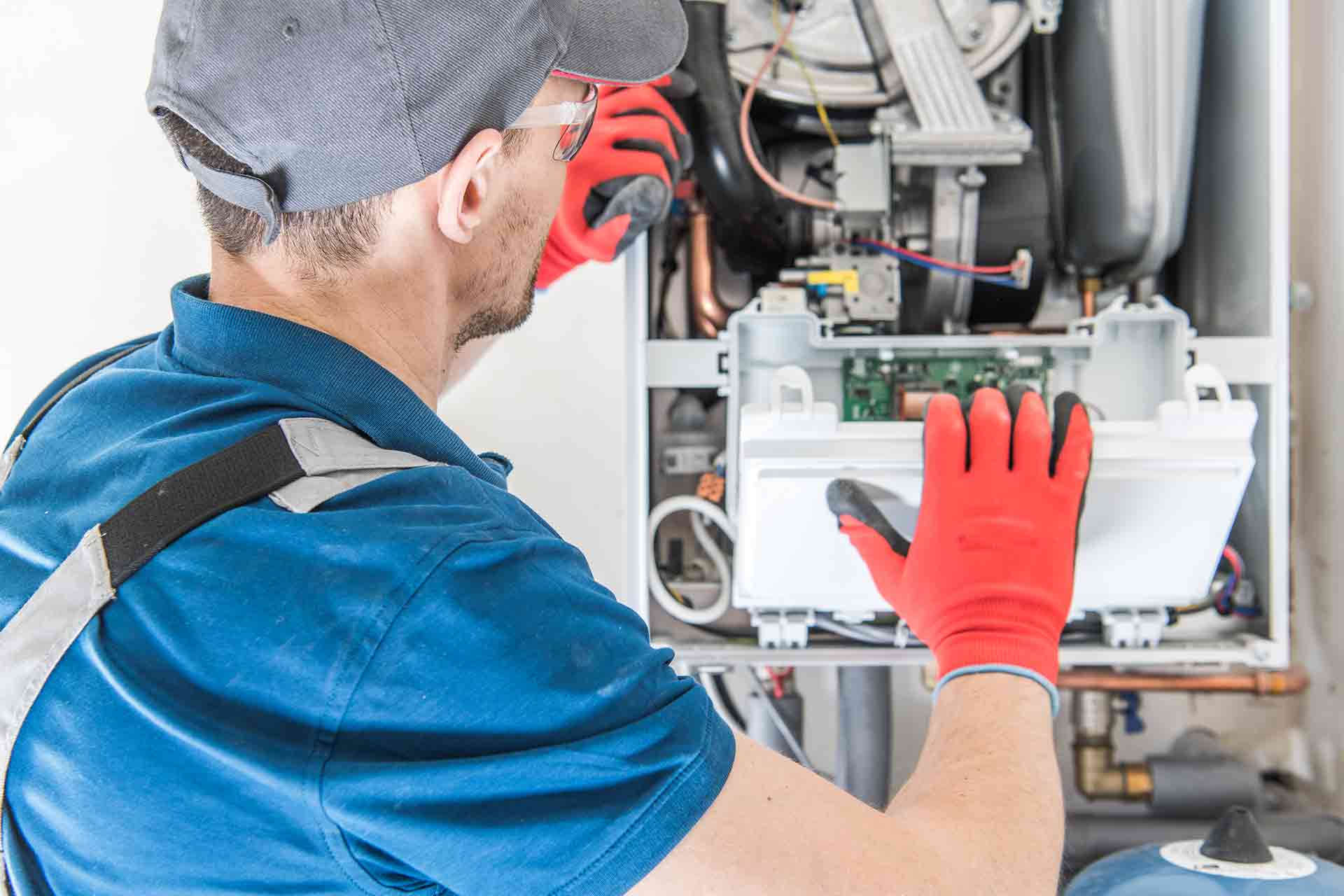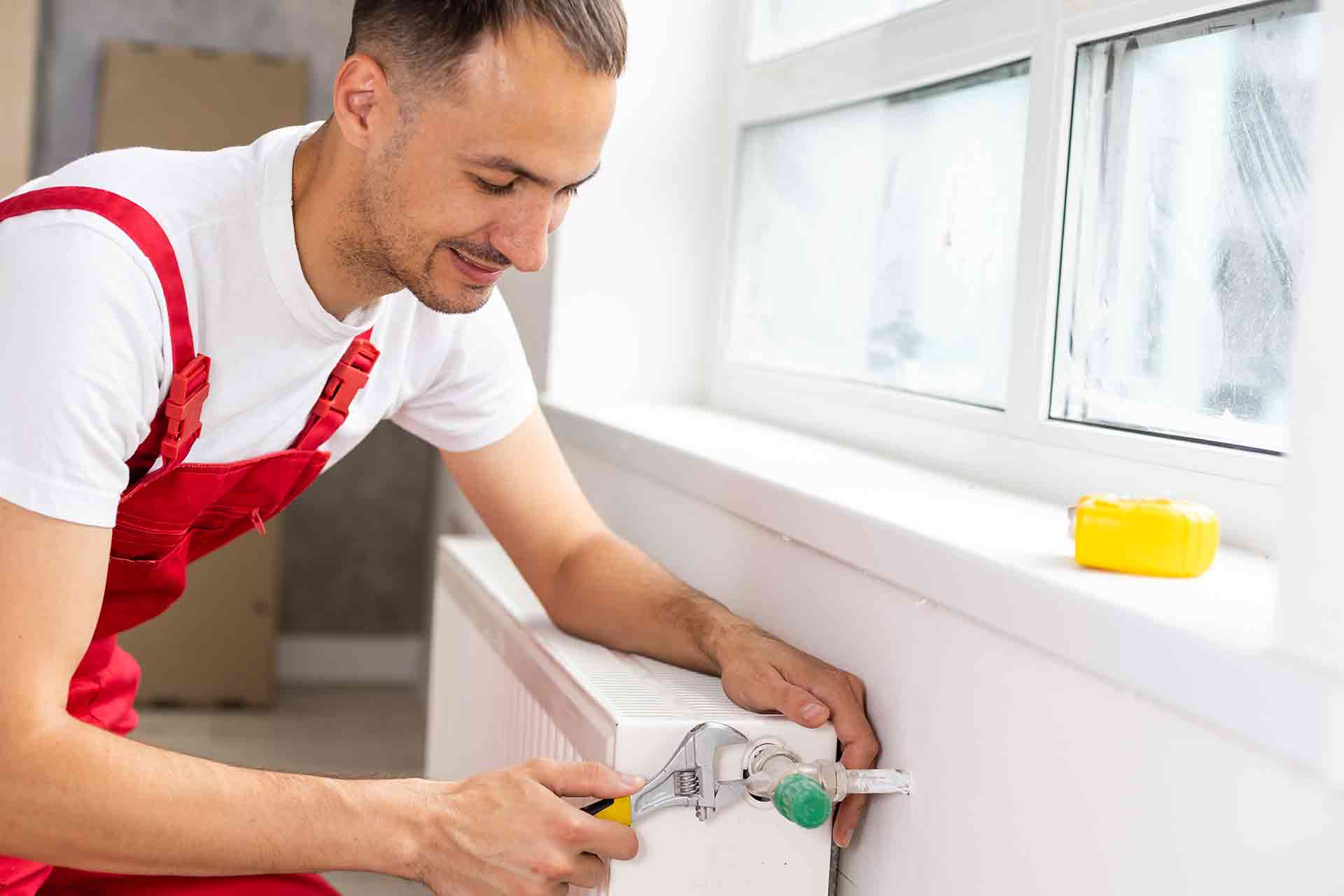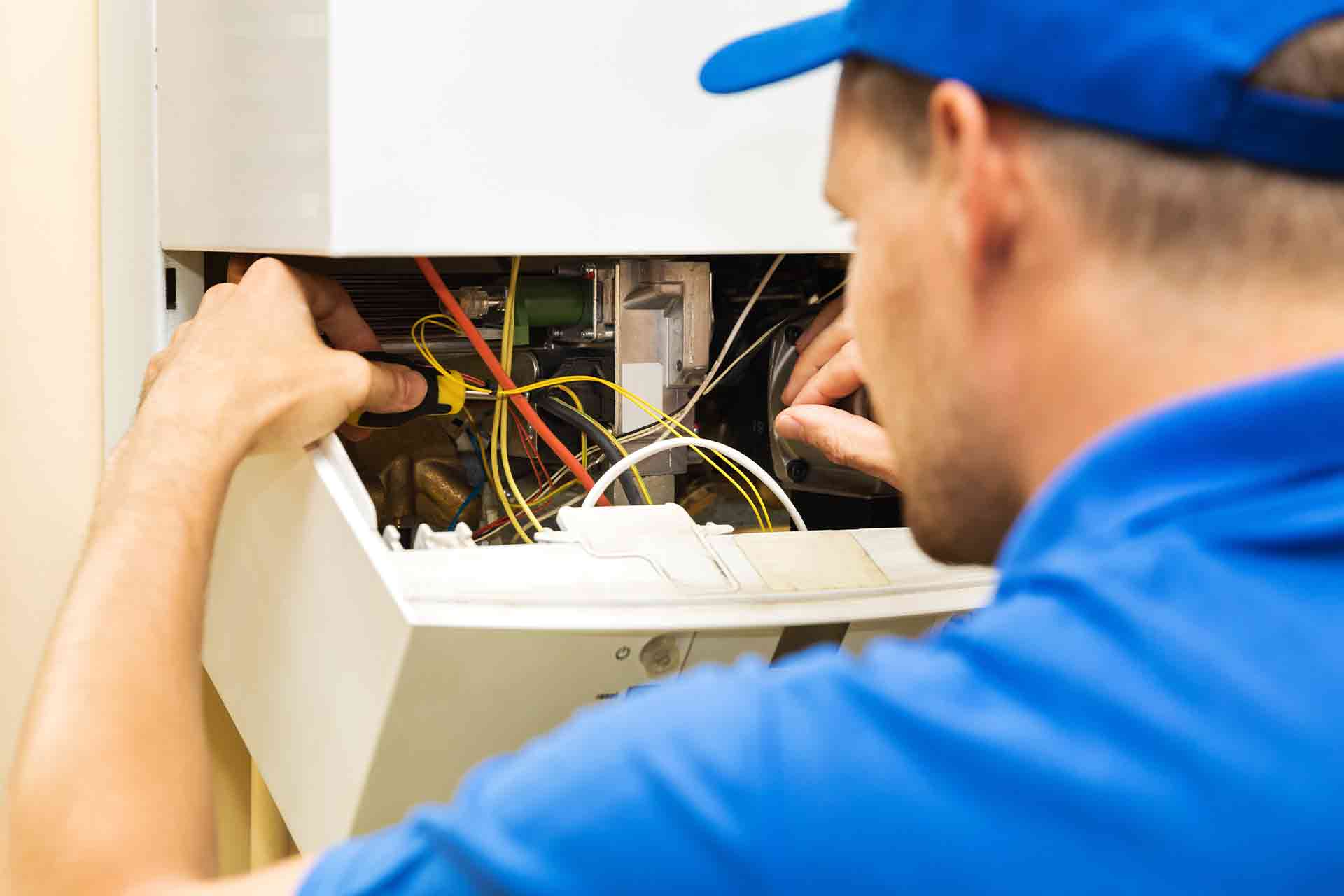Blog>Expert Advice>Why is my heating not working? Causes and solutions
Last updated: 11 November 2024
Why is my heating not working? Causes and solutions
Is your heating not working? Do you have cold radiators? We've got all the answers you need to fix these common heating issues.
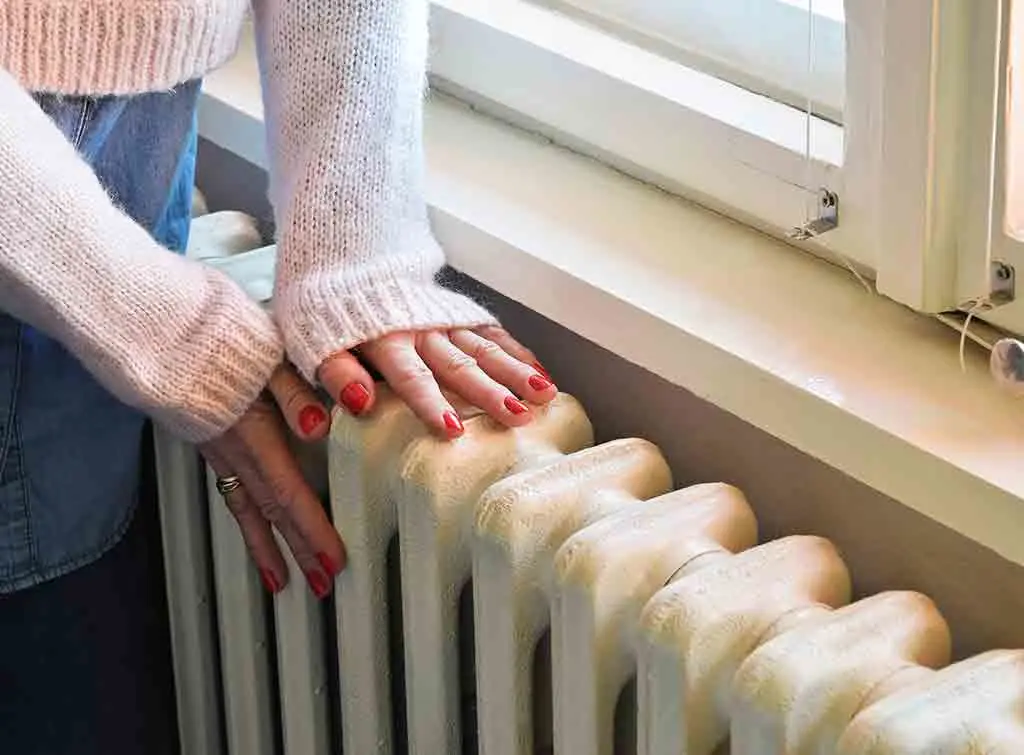
Most people aren't clued up on the inner workings of their heating system. So, if the heating suddenly stops working, it can be a nightmare.
Spotting common causes can help in these icy situations. Finding the safest fix is best for the comfort and safety of your home and family.
Read on to uncover the most common heating problems and the best fixes.
See the tradespeople we've checked and recommend for your job
Common reasons why your heating isn't working
Your heating may not be working because:
Your boiler needs a reset
There are power supply problems
Thermostat issues
Boiler timer issues
Low boiler pressure
Boiler malfunction
Radiator problems
Airlock problems
Frozen condensate pipes
Ageing boiler
A quick fix might be possible for common heating problems. But for more complex heating repairs, an electric or gas-safe heating engineer is the best option.
Here's what you can do if you suspect you have any of the above problems:
1. Reset your boiler
First, try a simple fix. Turn your boiler on or off again to reset it.
You can also manually reset it by pressing the reset button on the front panel of your boiler. If you're unsure, check your boiler manual.
Because gas central heating relies on electricity, boilers are susceptible to malfunctioning.
Resetting the system can reset these components to clear minor faults or glitches.
2. Power supply problems
Your heating system may not work because there's no power supply to heating systems.
First, check that there are no power cuts in your area. Then, check that all the switches and circuit breakers are on. You can also try resetting your circuit breakers.
If you still have no heating, it could be time to call a boiler engineer.
3. Thermostat issues
The next step is to check for a thermostat that is not working.
First, check the batteries. If the batteries aren't dead, look at the temperature setting.
When the thermostat setting is too low, the heating will only come on when the room temperature is lower than the room temperature setting.
Try setting your thermostat between 18°C and 21°CF or higher to trigger the boiler.
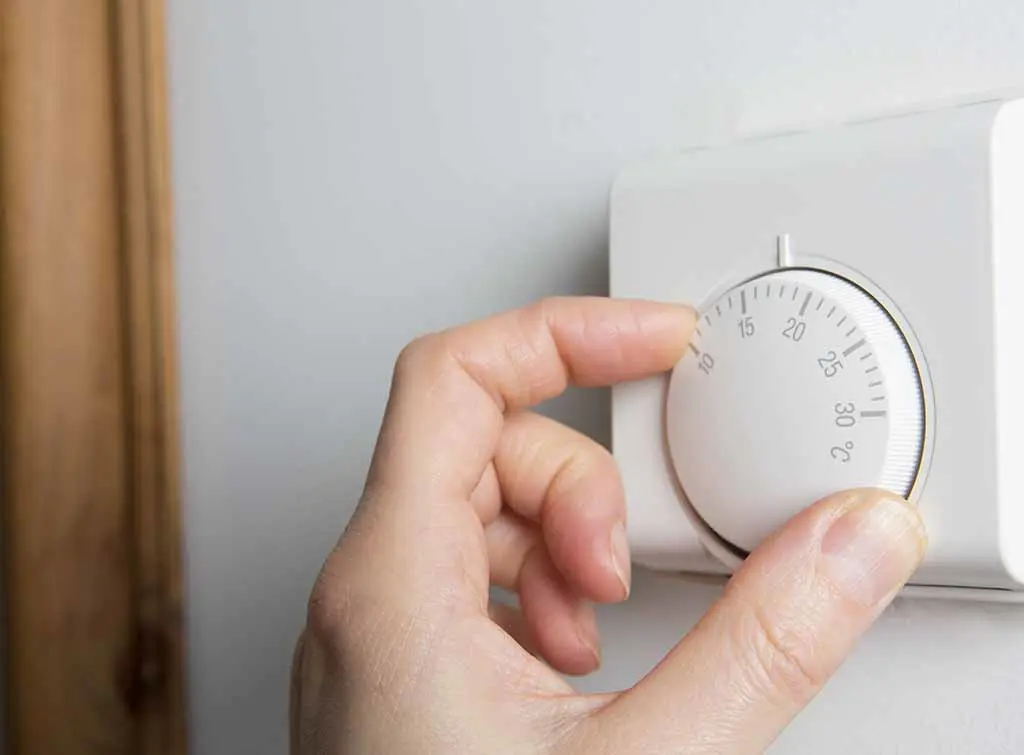
4. Boiler timer issues
Your boiler not working may be down to the timer controls.
When your timer isn't working, your heating won't come on when you want it to.
Adjust all the clocks in your home, including your boiler timer, when the clocks change.
Incorrect timer settings, faulty timers, or worn-out timers can cause heating problems.
5. Low boiler pressure
Problems with boiler pressure are a common cause of heating failure.
Your boiler's pressure gauge bar should sit between 1 and 1.5. If not, you can adjust your water valve to increase or decrease the pressure.
Reset your boiler once you've re-pressurised it. Your user manual can help with this.
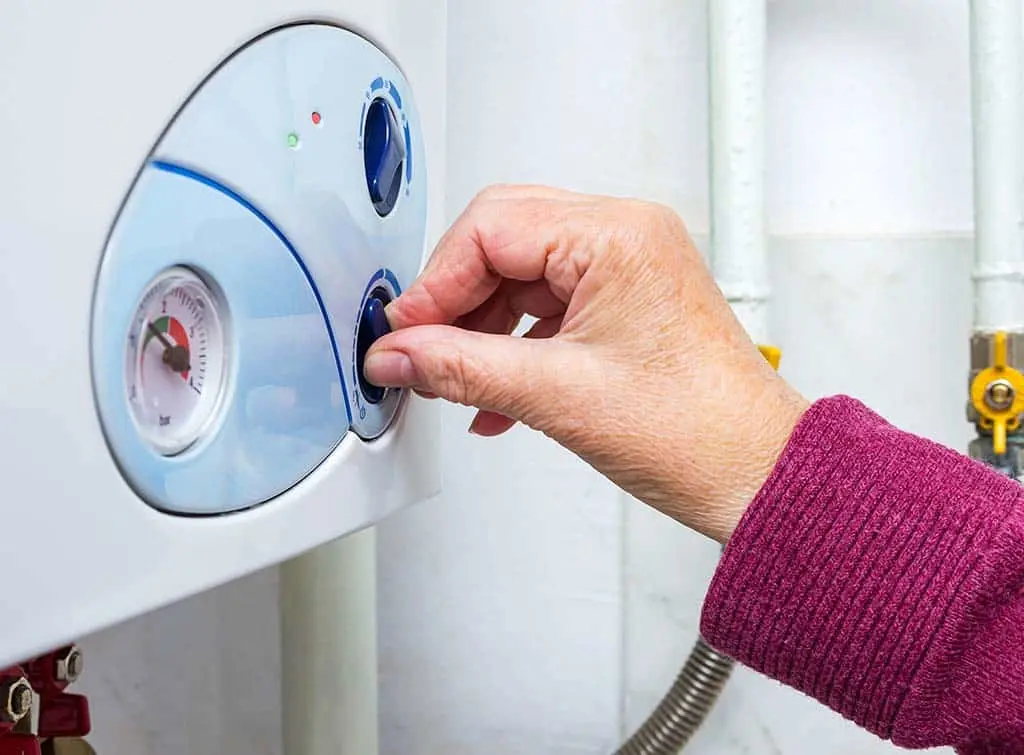
6. Boiler malfunctions
Your boiler is a complicated piece of equipment. The pressure isn't the only reason it doesn't work.
Other boiler issues include:
Error codes: Look for warning lights or error codes on the display panel that you might be able to resolve yourself with the help of your manual
Loose heating element: Listen for a humming noise that suggests a problem with your heating element
Blown pilot light: Check your manual for instructions on relighting a pilot light; call a gas-safe engineer for ongoing pilot light issues
A gas-safe engineer is the best tradesperson to help with heating issues like these.
Find out how to find a boiler repair engineer.
7. Radiator problems
There might be several causes of a radiator not heating up, such as:
Cold radiators. Cold spots on your radiator, especially at the top, signal trapped air - bleeding your radiator might fix the issue
Thermostatic Radiator Valve (TRV). A stuck or faulty valve stops the radiator from regulating its temperature, and hot water can't enter the radiator; gently turn the valve to check if it's jammed
Circulating pump issues. A worn pump stops hot water from moving through the radiators - a professional fix is safest here
Blocked radiators or pipes. A build-up of debris and sludge can stop the flow of hot water to your radiators
If your radiators are young enough to save, you might consider flushing them out. But, for older radiators, it might be better to replace them.
Find out how much it costs to remove and replace a radiator.
See the tradespeople we've checked and recommend for your job
8. Airlock in the system
Air trapped in pipes or radiators is a common heating problem. An airlock in heating systems blocks the water flow from circulating to the radiators.
This might be the issue if you hear gurgling sounds, have cold radiators, or have no heating (but the system is on).
You can try bleeding the radiators or flushing the system. If that doesn't work, find the right tradesperson to fix this heating problem.
9. Frozen condensate pipes
In the UK, winter can be a real problem for outdoor and indoor plumbing.
Freezing temperatures can lead to a frozen condensate pipe.
When even the tiniest bit of water freezes in your pipes, it blocks the pipes and stops the boiler from igniting. Your heating will only work once the pipes thaw.
You can speed up the process by thawing them with hot water - but never boiling water.
10. Ageing boilers
Boilers usually have a lifespan of about 10 - 15 years.
Is your boiler or other heating system getting old? You might need a new boiler if you have higher energy bills, hear strange noises, or experience frequent breakdowns.
Look for these key signs that you need a new boiler.
A gas-safe engineer can tell you whether it's worth updating your boiler.
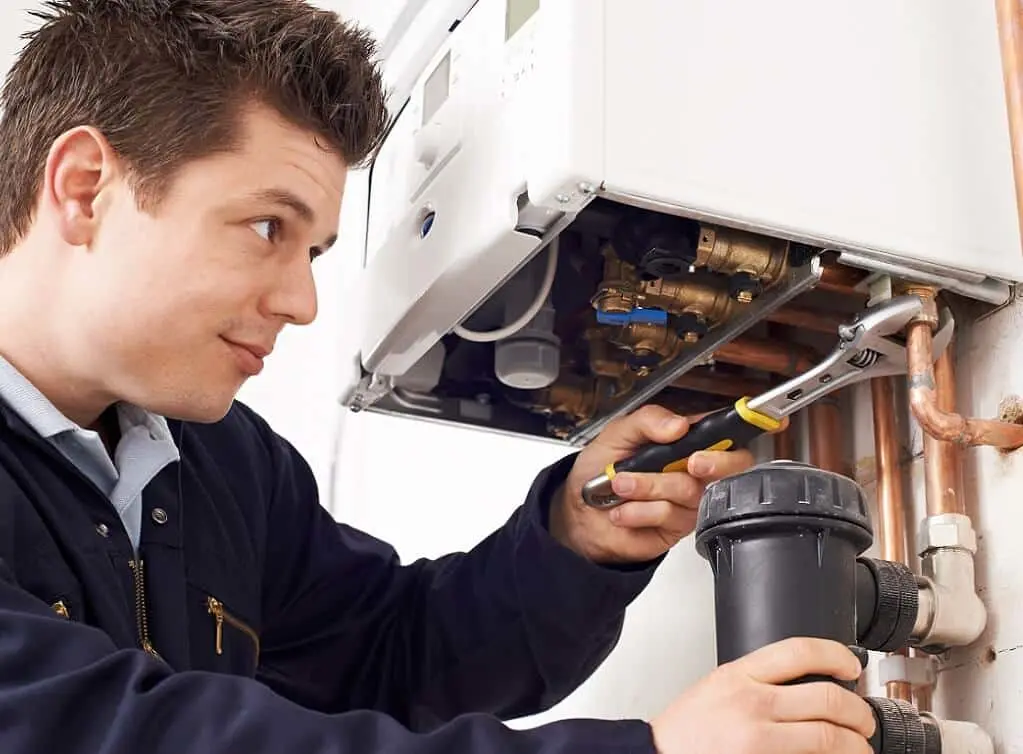
Other potential heating problems
Have you ruled out all of the above and are still stumped by your heating not working?
Your heating system may be suffering from:
Blocked or dirty air filters
Clogged filters can be a problem for boilers because they restrict airflow, leading to poor energy efficiency.
You might be able to clean or replace your filters yourself.
Faulty zone valves
Zone valves are essential in a heating system because they control heat distribution across different areas.
You might have inconsistent heating when you've got faulty or stuck valves.
Water leaks in the system
When your boiler keeps losing pressure, a system leak may be the problem.
Look for visible leaks around the boiler.
If you can't find the leak, a heating repair service can help.
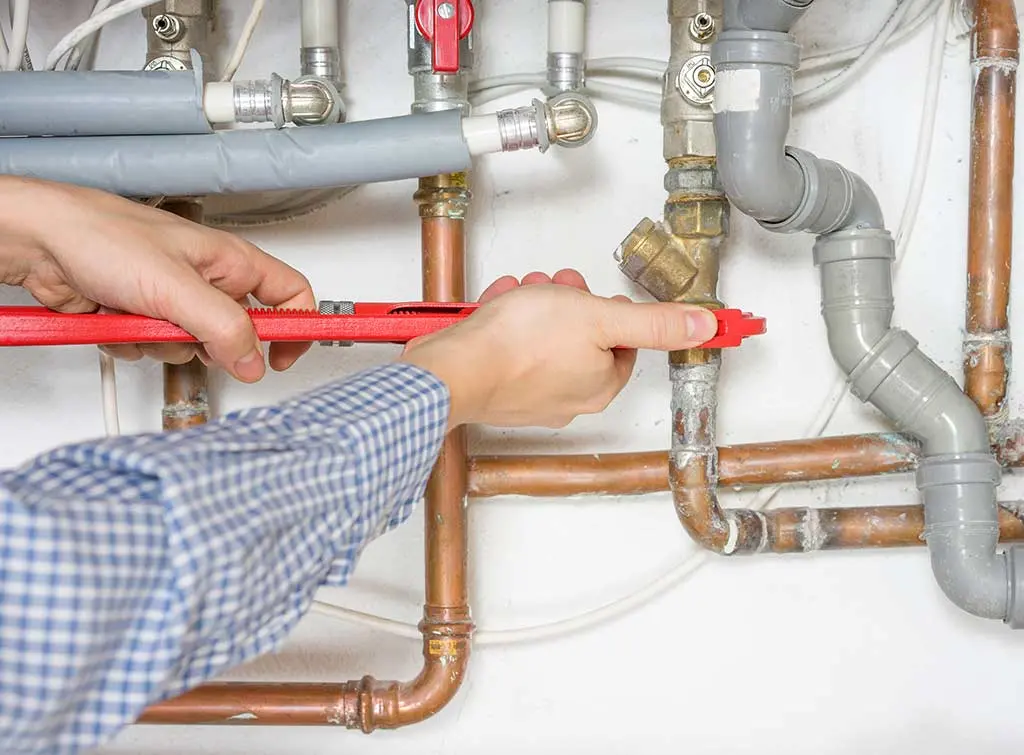
How to prevent heating issues in the future
Prevention is always better than cure. Maintaining your heating system can help to prevent future problems with your heating system.
Try these simple maintenance steps to avoid further heating issues:
**Arrange for annual servicing **by a professional who can do regular diagnostics checks and servicing to prevent breakdowns
**Regularly bleed your radiators **and do pressure checks to keep your system efficient
FAQs
Why isn't my heating coming on?
There are many reasons why your heating is not working.
These can range from easy fixes like an incorrect timer setting to professional-only fixes like a burst pipe or circulating pump failure.
Why is my heating not working, but I have hot water?
When there is no heating but hot water, the problem is likely just with the heating system.
Heating problems might be because of your boiler or heating system settings. You can adjust the settings and see if this gets your boiler working again.
If this doesn't work, you may have issues with a malfunctioning pump, closed valves, or heating controls.
A professional gas-safe engineer will help get your boiler back in working order.
Why is my boiler on but no heating?
When your boiler is working, but you're still shivering under the covers, it's often due to radiator problems.
You might have trapped air, a pipe blockage, or a boiler fault.
Check for cold radiators. Bleeding them might solve the problem.
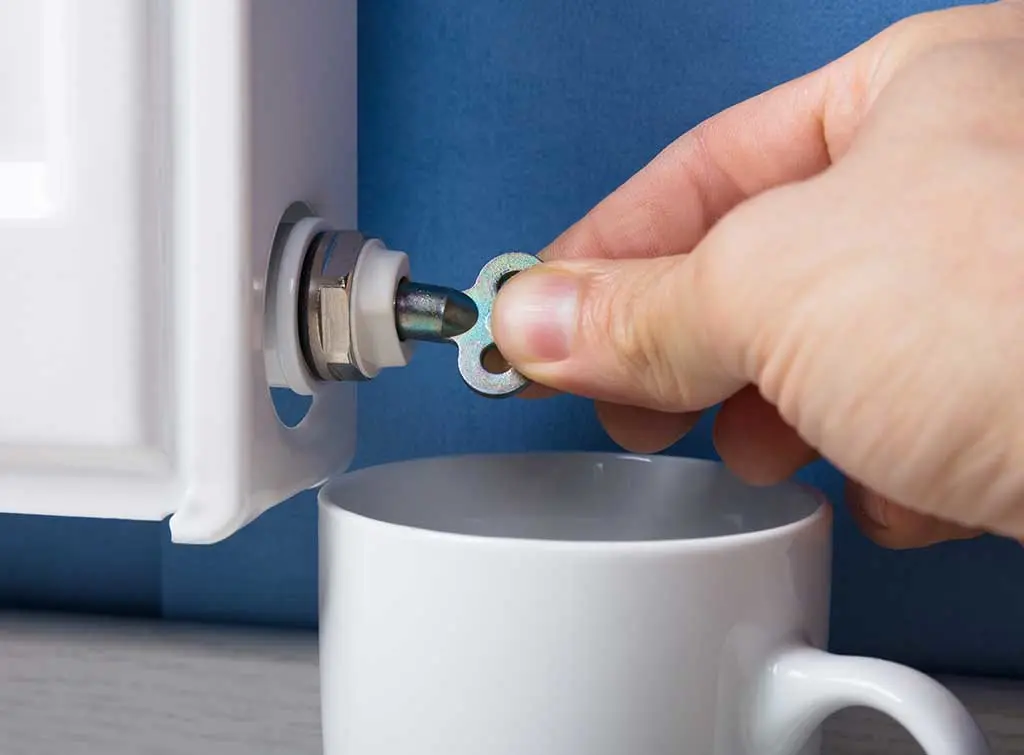
Why is my heating only working in certain rooms?
There could be multiple heating issues when you only have heating in certain rooms.
Common causes are a stuck valve in the radiator or air trapped somewhere in the system.
What should I do if my boiler keeps losing pressure?
If you're constantly topping up the pressure, you might have a leak in your heating system.
A professional plumber or boiler engineer can help locate and repair the leak.
See the tradespeople we've checked and recommend for your job
More Expert Advice Articles
More Central Heating Articles
See the tradespeople we've checked and recommend for your job

